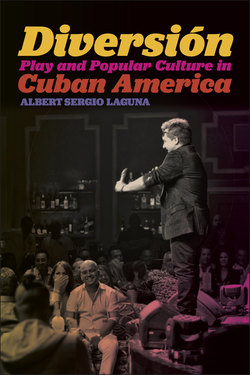Описание книги
Winner, 2018 Peter C. Rollins Book Prize, presented by the Northeast Popular/American Culture Association Winner, 2018 Robert K. Martin Book Prize, presented by the Canadian American Studies AssociationHonorable Mention, 2019 Outstanding Book Award, given by the Latina/o Studies Section of the Latin American Studies Association A re-examination of the Cuban diaspora through the lens of popular culture. In an era of warming relations between the US and Cuba, this book updates the conversation about Cuban America by showing how this community has changed over the past 25 years. No longer a conservative Republican voting bloc, the majority of Cubans today want more engagement with the island instead of less. Laguna investigates the generational shifts and tensions in a Cuban America where the majority is now made up of immigrants who arrived since the 1990s and those born in the US. To probe these changes, Laguna examines the aesthetic and social logics of a wide range of popular culture forms originating in Miami and Cuba from the 1970s through the 2010s. They include the stand-up comedy of performers like Alvarez Guedes and Robertico, a festival called Cuba Nostalgia, Miami morning radio shows, a form of media distribution on the island known as el paquete, and the viral social media content of Los Pichy Boys. This study illustrates the centrality of play in a community that has been described historically as angry, reactionary, and melancholic. Diversión contends that our understanding of the Cuban diaspora is lacking not in seriousness, but in play. By unpacking this archive, Laguna explores our complex, often fraught attachments to popular culture and the way it can challenge and reproduce typical cultural ideologies—especially in relation to politics and race. In the wake of the largest migration wave to the US in Cuban history, Diversión and its focus on play is crucial reading for those who seek to understand not only the Cuban American diaspora, but cultural and economic life on the island.Winner, 2018 Peter C. Rollins Book Prize, presented by the Northeast Popular/American Culture Association Winner, 2018 Robert K. Martin Book Prize, presented by the Canadian American Studies Association A re-examination of the Cuban diaspora through the lens of popular culture. In an era of warming relations between the US and Cuba, this book updates the conversation about Cuban America by showing how this community has changed over the past 25 years. No longer a conservative Republican voting bloc, the majority of Cubans today want more engagement with the island instead of less. Laguna investigates the generational shifts and tensions in a Cuban America where the majority is now made up of immigrants who arrived since the 1990s and those born in the US. To probe these changes, Laguna examines the aesthetic and social logics of a wide range of popular culture forms originating in Miami and Cuba from the 1970s through the 2010s. They include the stand-up comedy of performers like Alvarez Guedes and Robertico, a festival called Cuba Nostalgia, Miami morning radio shows, a form of media distribution on the island known as el paquete, and the viral social media content of Los Pichy Boys. This study illustrates the centrality of play in a community that has been described historically as angry, reactionary, and melancholic. Diversión contends that our understanding of the Cuban diaspora is lacking not in seriousness, but in play. By unpacking this archive, Laguna explores our complex, often fraught attachments to popular culture and the way it can challenge and reproduce typical cultural ideologies—especially in relation to politics and race. In the wake of the largest migration wave to the US in Cuban history, Diversión and its focus on play is crucial reading for those who seek to understand not only the Cuban American diaspora, but cultural and economic life on the island.
